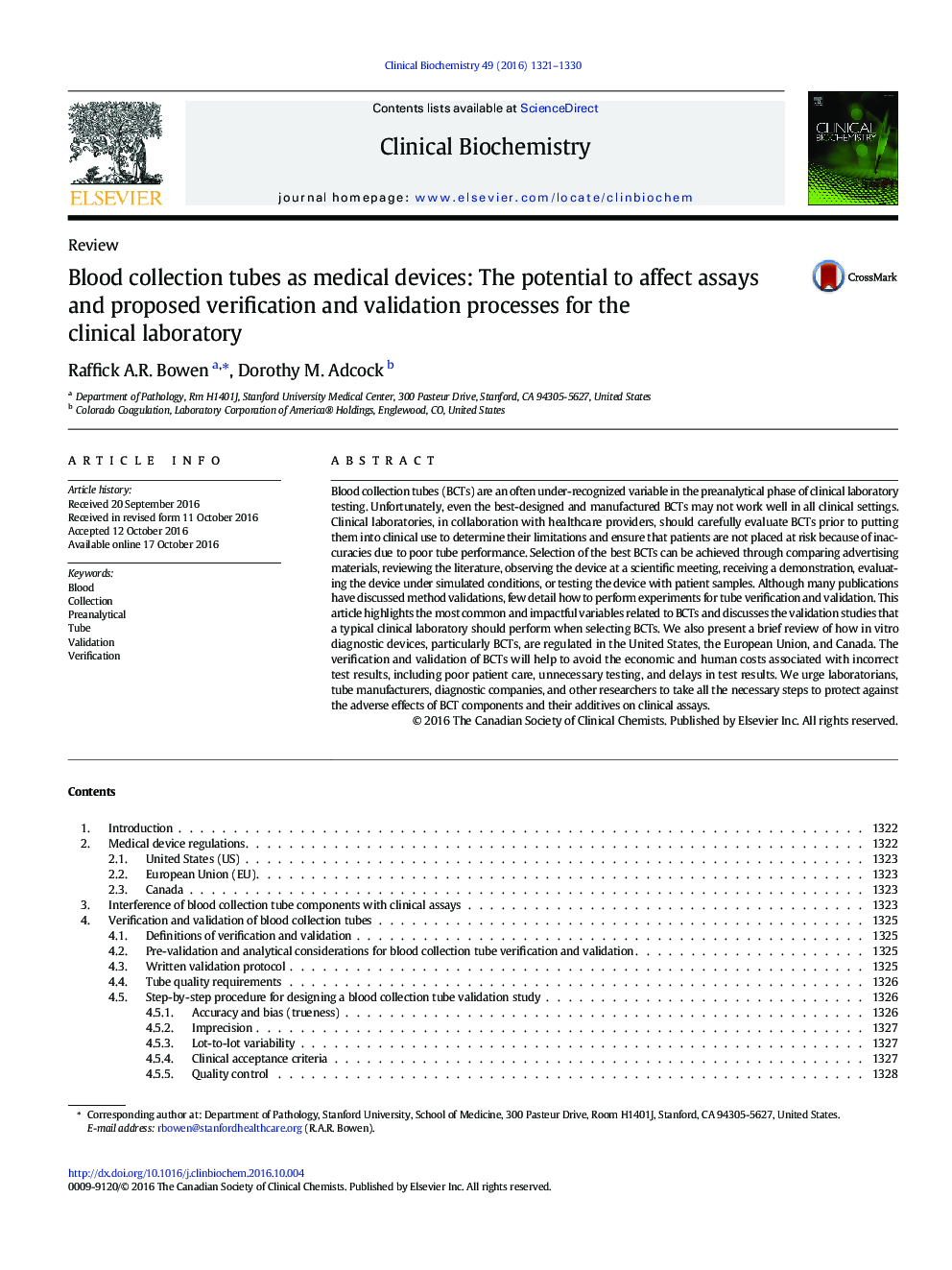| Article ID | Journal | Published Year | Pages | File Type |
|---|---|---|---|---|
| 5509961 | Clinical Biochemistry | 2016 | 10 Pages |
â¢Blood collection tubes (BCTs) are an under-recognized variable in laboratory testing.â¢Laboratorians should carefully evaluate BCTs prior to putting them into clinical use.â¢Few publications are available on how to perform BCT validation studies.â¢This article highlights the regulations and impactful variables related to BCTs.â¢Details are also provided on BCT validation studies for a clinical laboratory.
Blood collection tubes (BCTs) are an often under-recognized variable in the preanalytical phase of clinical laboratory testing. Unfortunately, even the best-designed and manufactured BCTs may not work well in all clinical settings. Clinical laboratories, in collaboration with healthcare providers, should carefully evaluate BCTs prior to putting them into clinical use to determine their limitations and ensure that patients are not placed at risk because of inaccuracies due to poor tube performance. Selection of the best BCTs can be achieved through comparing advertising materials, reviewing the literature, observing the device at a scientific meeting, receiving a demonstration, evaluating the device under simulated conditions, or testing the device with patient samples. Although many publications have discussed method validations, few detail how to perform experiments for tube verification and validation. This article highlights the most common and impactful variables related to BCTs and discusses the validation studies that a typical clinical laboratory should perform when selecting BCTs. We also present a brief review of how in vitro diagnostic devices, particularly BCTs, are regulated in the United States, the European Union, and Canada. The verification and validation of BCTs will help to avoid the economic and human costs associated with incorrect test results, including poor patient care, unnecessary testing, and delays in test results. We urge laboratorians, tube manufacturers, diagnostic companies, and other researchers to take all the necessary steps to protect against the adverse effects of BCT components and their additives on clinical assays.
